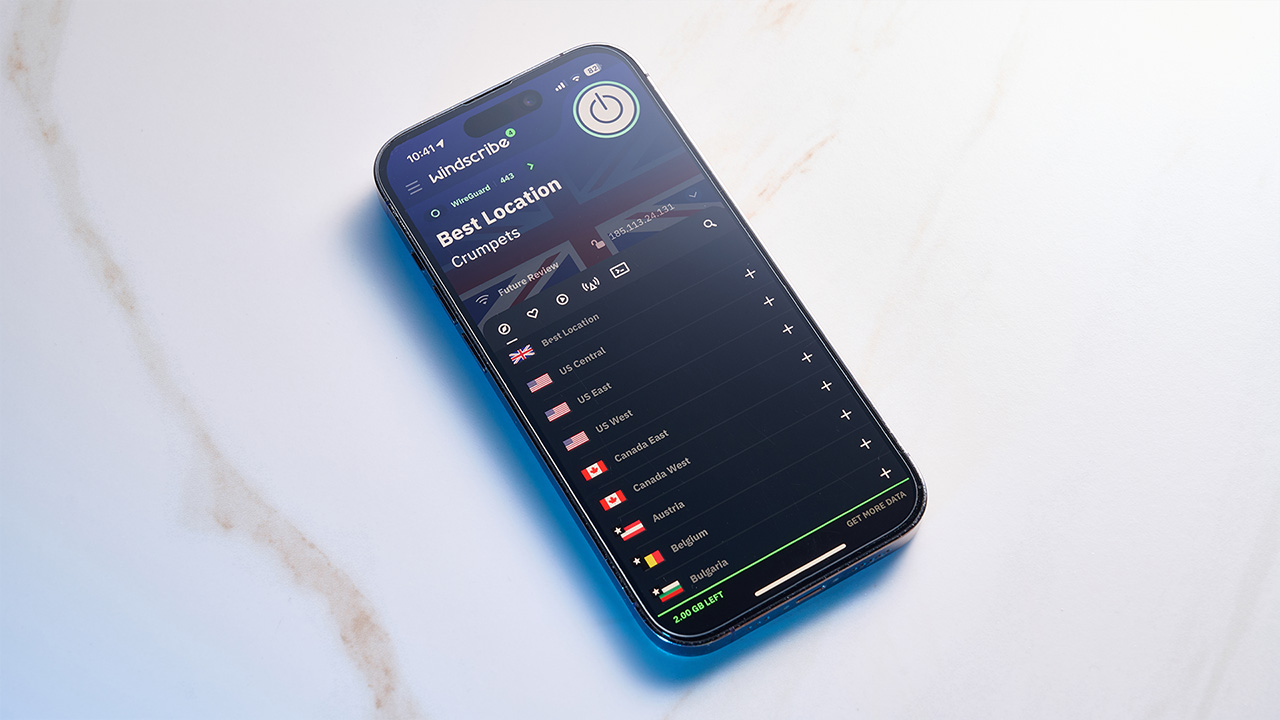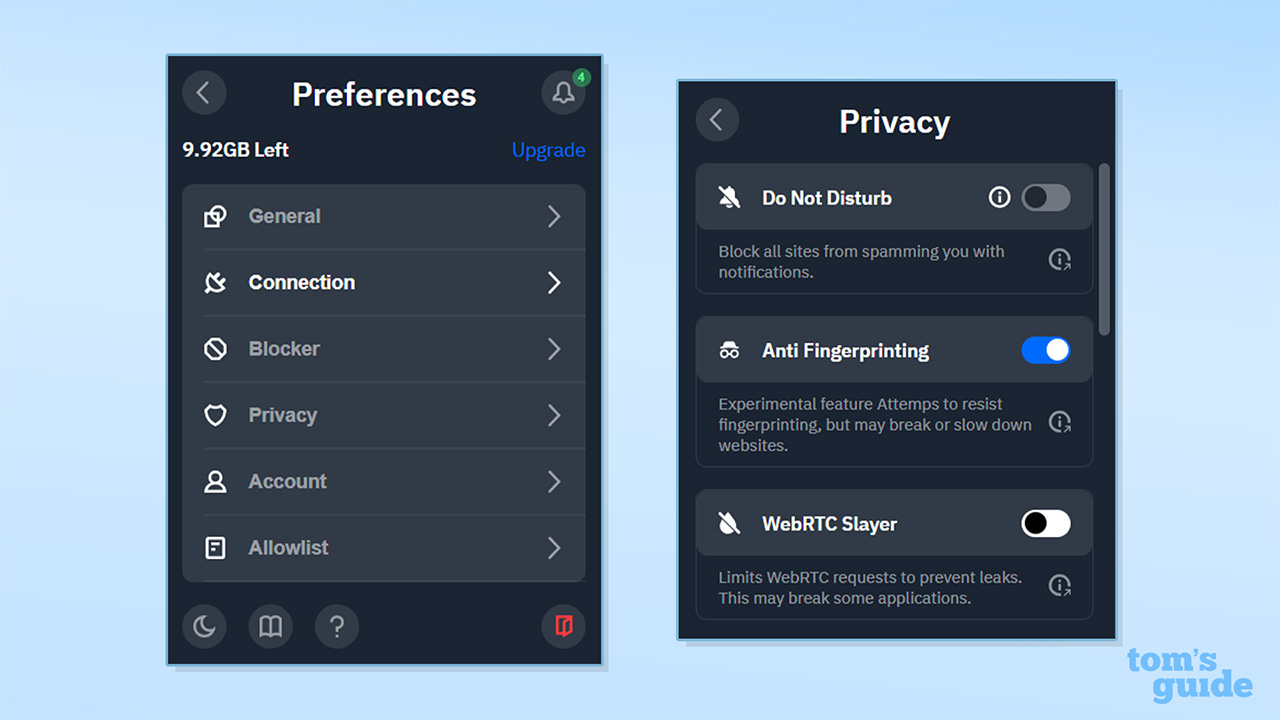Windscribe brings anti-fingerprinting to its browser extension to protect you from nasty trackers
You should combine it with the provider's desktop VPN app

Windscribe VPN has taken steps to protect you from being tracked online with the introduction of anti-fingerprinting for its VPN browser extension.
The best VPNs encrypt your traffic and can spoof your location. However, traditional VPNs have no effect on browser fingerprinting, which can allow your activity to be linked to this and tracked across sites.
Fingerprinting is very specific and detailed information about your device and browsing activity. It goes deeper than cookie tracking, and using incognito mode or clearing browsing history won't remove it.
Windscribe is encouraging users to use its extension alongside its desktop VPN app to ensure you have its most complete privacy package.

When it comes to browser tracking, cookies are often the first example that comes to mind. Rejecting cookies is an important way of protecting your online privacy and helps reduce tracking. But cookies are not the only way you can be tracked, it is also done via fingerprinting.
In its blog post, Windscribe describes fingerprinting as "oddly specific breadcrumbs" left behind every time you load and visit websites. Data can include screen resolution, installed fonts and plugins, graphics card information, and time zone and system language.
Windscribe warns that even when using incognito mode and clearing cookies and history, this "unique fingerprint" can "follow you across the web."
The provider's anti-fingerprinting feature ensures your fingerprint "never looks the same twice."
It will change every time you use your browser and your activity and data can't be matched or traced across different sessions.
Intelligent browser randomization shuffles your browser fingerprint, including canvas, audio, screen, and font data. Windscribe says it "slams the door on commercial fingerprinting attempts" quickly and before they can analyze your profile.
The feature has a degree of customization as there may be platforms you do want to be recognised on. Windscribe boasts an allowlist where you can lower protections for certain sites.
These anti-fingerprinting features are built directly into Windscribe's VPN browser extension and will keep sites usable, while maintaining privacy.

Follow these steps to enable anti-fingerprinting:
- Install the latest version of Windscribe's VPN browser extension
- Open the extension
- Click the three lines in the top left
- Select Privacy
- Toggle Anti-Fingerprinting on and off.
Windscribe's VPN browser extension is a powerful tool and includes a host of additional features. There's an ad and tracker blocker, time zone, language, and location spoofing, and IP leak protection. The extension will also automatically clear all cookies once you leave a site.
As mentioned above, for total online privacy, you should use both Windscribe's browser extension and its desktop VPN app. The extension only protects you within your browser, so a full VPN connection is needed to encrypt your traffic and protect all devices on your network.
Windscribe offers both a paid and free version of its apps, including its browser extension. The paid plan works out at $5.75 per month and gets you all of Windscribe's features.
We rate Windscribe Free as one of the best free VPNs out there. You'll get 10 GB of data per month, speeds of over 400 Mbps, and protection for unlimited devices.
Both versions of Windscribe benefit from anti-fingerprinting features.
Follow Tom's Guide on Google News, or add us as a preferred source, to get our up-to-date news, analysis, and reviews in your feeds. Make sure to click the Follow button!
We test and review VPN services in the context of legal recreational uses. For example: 1. Accessing a service from another country (subject to the terms and conditions of that service). 2. Protecting your online security and strengthening your online privacy when abroad. We do not support or condone the illegal or malicious use of VPN services. Consuming pirated content that is paid-for is neither endorsed nor approved by Future Publishing.

George is a Staff Writer at Tom's Guide, covering VPN, privacy, and cybersecurity news. He is especially interested in digital rights and censorship, and its interplay with politics. Outside of work, George is passionate about music, Star Wars, and Karate.
You must confirm your public display name before commenting
Please logout and then login again, you will then be prompted to enter your display name.
 Club Benefits
Club Benefits





